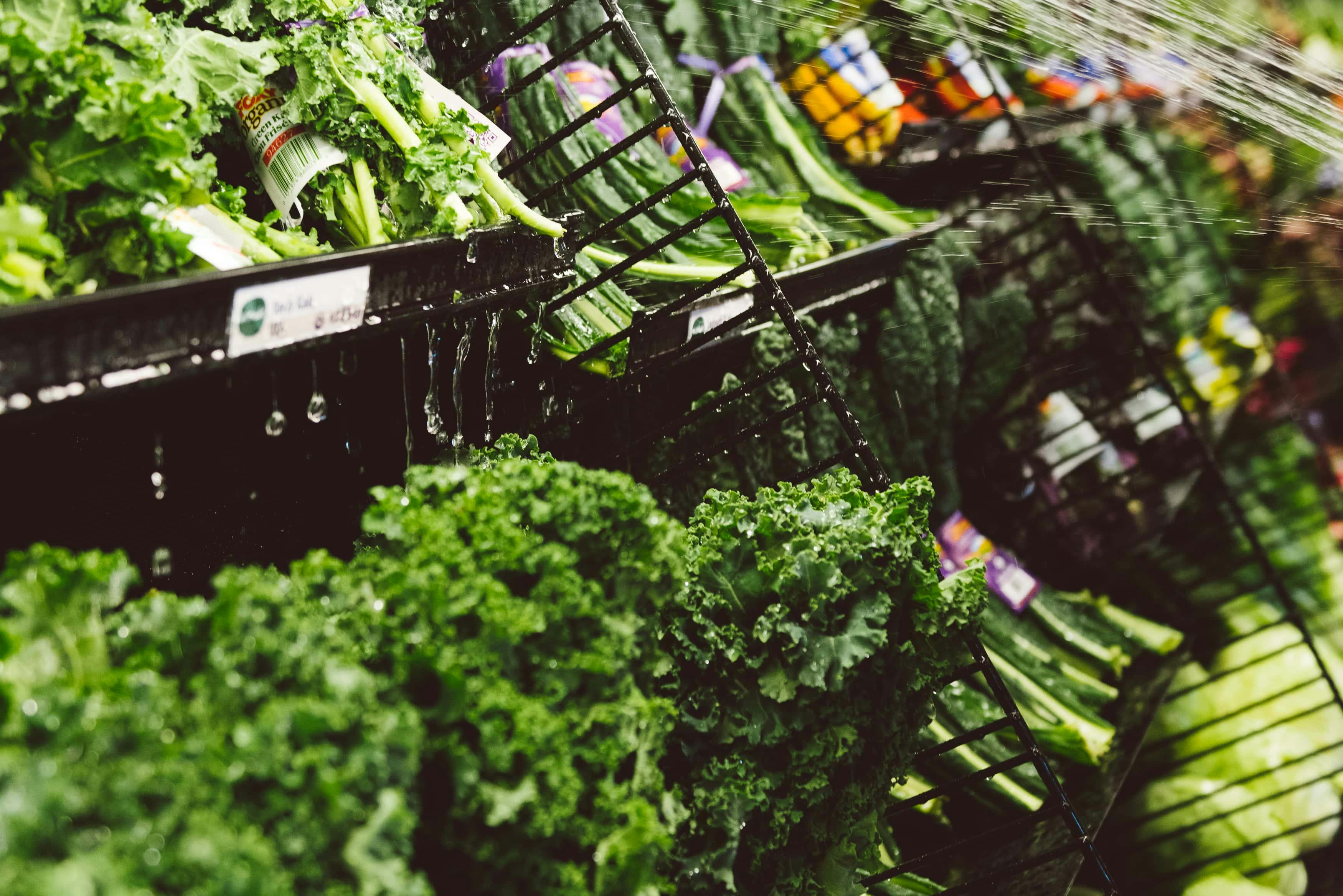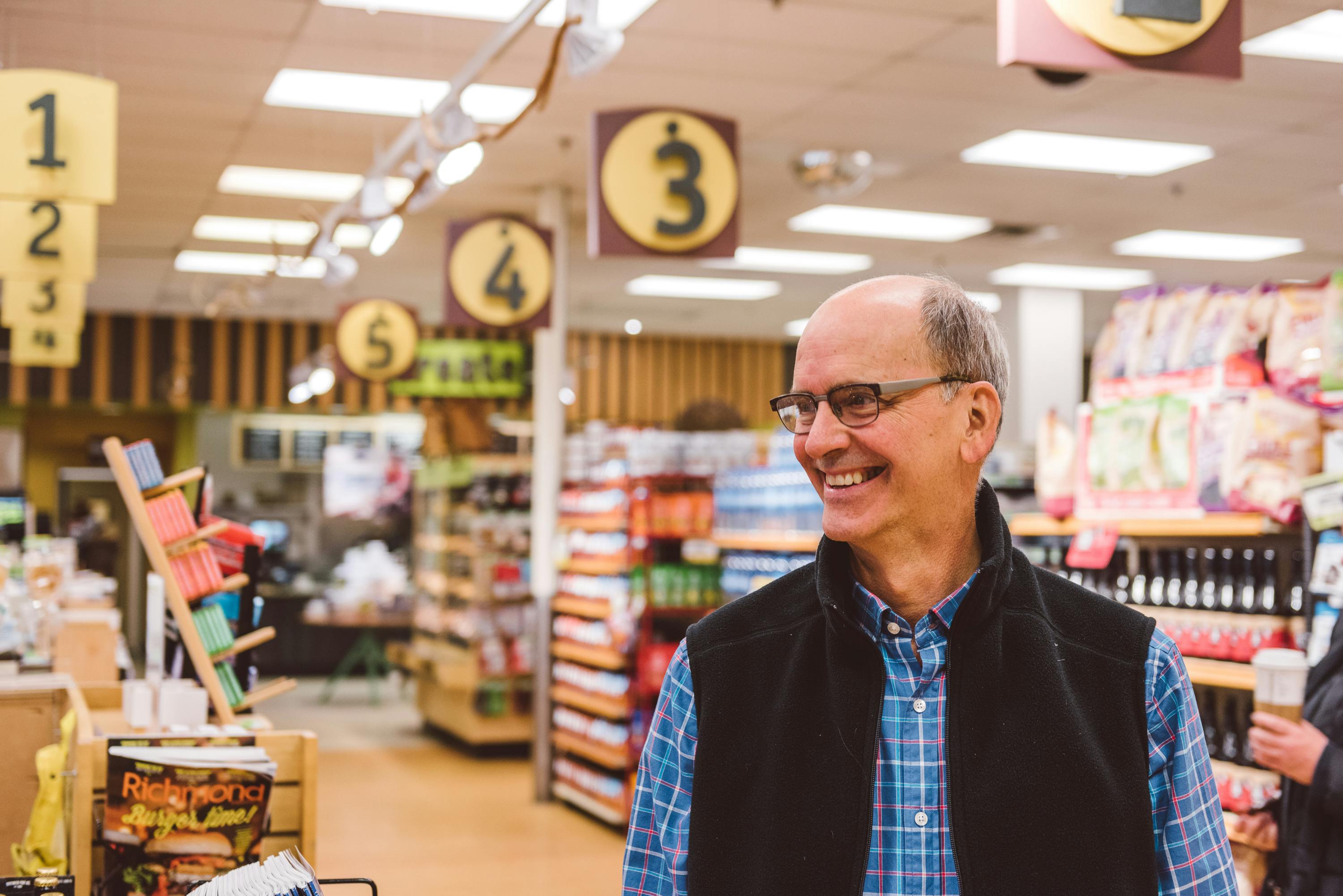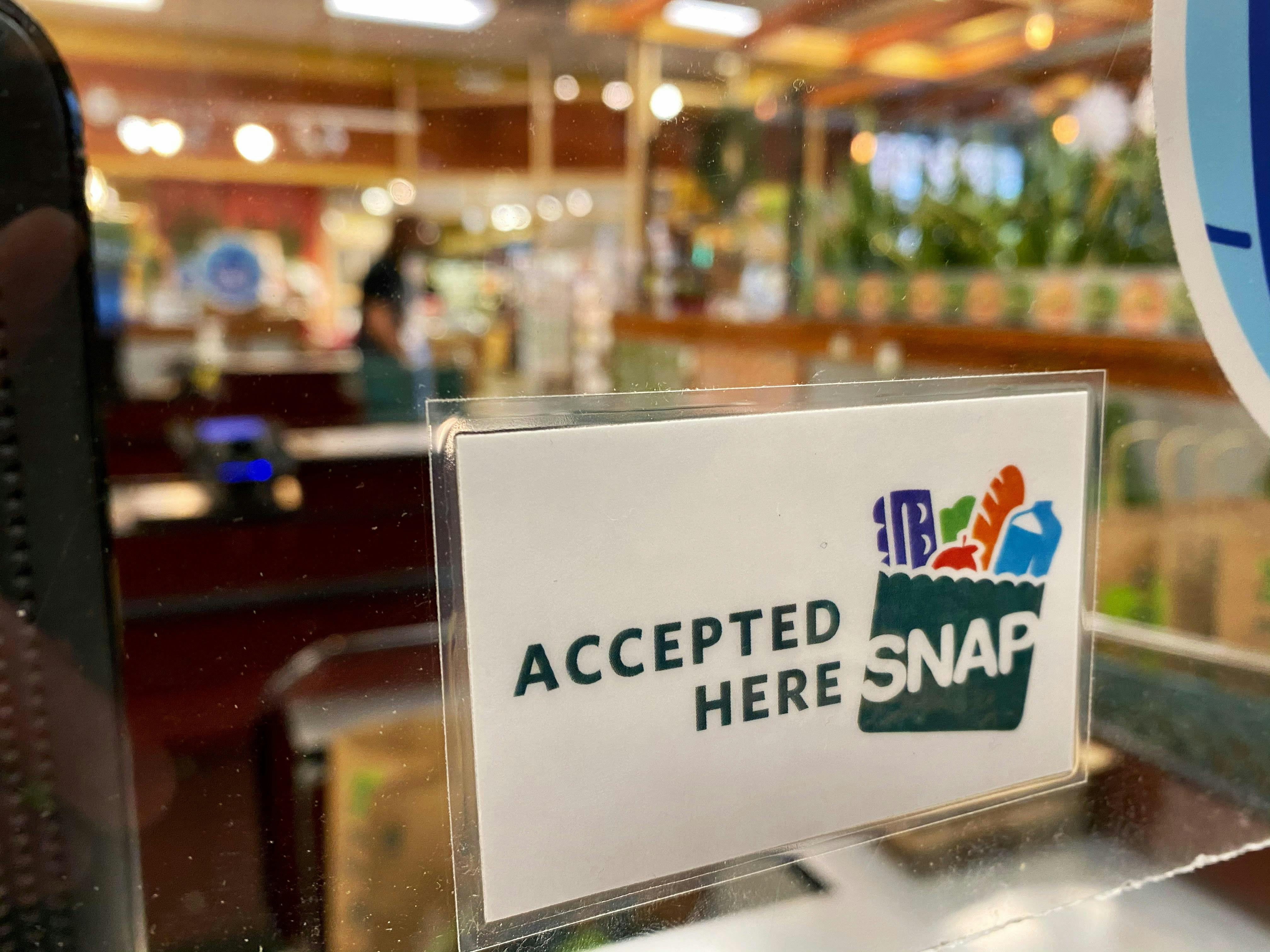Like most other retail businesses since the 1950’s, large grocery chains have become a dominant element of our industrial food system. This historical development has diminished the trust and personal relationship between those who grow our food and those who buy it, and food transparency and ethical standards have suffered in the process. Large corporate systems are stock market companies that must grow and secure greater and greater profits for their shareholders who are only concerned generally about economic gain. This encourages the building of more and more stores to dominate and out compete each other. Additionally, these businesses concentrate power and wealth in fewer and fewer hands. These businesses, specifically hi-tech companies, can only serve to automate and amplify these existing inequities. This trend toward consolidation, mergers and concentrated economic power in a few grocers' hands has been facilitated since the 1980's by a lack of antitrust enforcement by our government. The argument goes that if bigger companies are more efficient and likely to reduce prices to the consumer, it's good. The result is that only a few retailers dominate, leading to less competition and more unfairness in the marketplace.
The result? Predatory behavior towards small and mid-size independents as larger grocers have sought more scale. Then consider the following: Today, Facebook and Google are American's first stop when seeking news. Amazon is Americans first stop when seeking to buy anything, with 55% of all retail searches starting with Amazon.
Amazon threatens to monopolize retail through controlling three critical components:
- Platform: Prime
- Data: cloud computing
- Shipping & Delivery
Although these big corporations strive to appear locally connected, their scale naturally aligns them with big farmers and big vendors not smaller local vendors. At this scale, we lose quality, attention to unique new products and sense of community. Instead of a country bubbling with small scale innovation, the rate of new business formation has declined significantly.
There was almost no anti-trust discussion prior to the sale of Whole Foods Market to Amazon. As more retailers sell out or close from an inability to compete, what's to stop Amazon from raising prices and freezing or lowering their employees wages? Overall entrepreneurship in the country is down 65% and investors are shying away from retail. All this creates a toxic effect to our retail and even democratic system. Our culture is poorer for it. Bringing back support for anti-trust enforcement is vital.
Instead of economies of scale, we need economies of community.
We believe the economy needs to be relocalized. Instead of economies of scale, we need economies of community. Economies of community can counter with a movement to create networks of farms, small manufacturers, local restaurants, independent distributors and motivated citizens all deeply engaged and connected with Richmond. Such a system makes people a part of something greater than themselves: a community of human beings who choose to establish healthy lifestyles and a clean, sustainable environment.
Additionally, a future goal in an ideal world should be to accept less growth and limit resource use. Finding a replacement for the psychological crutch of consumerism is critical in that acceptance. With a planet of limited natural resources, there will be no other result but increasing climate change and environmental degradation.
This better system is a more transparent, smaller, local one that emphasizes personal connection and a sustainable community over shareholder profits, dividends and market share. Collaboration among local independent food business, all focused intently on a smaller food system economy can create efficiencies, more consistency, and competitive pricing. Most importantly, this inclusive and cooperative mentality fosters a stronger, caring and unique community. Ellwood's promises to continually deepen our commitment to people and community.
Articles:
- STRONG TOWNS: HOW LOCAL CRONYISM HURTS AMERICA’S CITIES
- STRONG TOWNS: THE BIRTH OF THE MODERN SHARK TANK ECONOMY
- CIVIL EATS: WHY YOU SHOULD CARE ABOUT ‘BIG AG’ COMPANIES GETTING BIGGER
Resources:
- Institute for Local Self-Reliance: Stacy Mitchell
- REconomy Project
- Transition US
- BALLE
- National Federation of Independent Business











